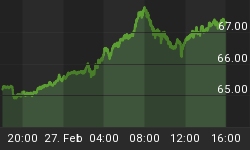Portugal has entered a phase change, with potentially huge ramifications.
After handing a parliamentary majority to a coalition of leftist (i.e., anti-austerity, anti-euro, anti-NATO) parties, and then trying to prevent them forming a government, the country now looks likely to stand back and let it happen. Here's an update from today's Wall Street Journal:
Portugal Government Ousted Amid Anger Over Austerity
LISBON -- A leftist alliance in Portugal's new parliament ousted the minority conservative government on Tuesday, raising pressure on the president to appoint a Socialist prime minister at odds with the eurozone's prevailing policies of austerity.
The vote rejecting Prime Minister Pedro Passos Coelho's governing program, 11 days into his second term, follows four years of sharp spending cuts and tax increases imposed to meet the demands of the country's bailout lenders. While the economy is growing again, it shrank sharply between 2011 and 2013.
The parliamentary rebellion was the latest sign of how austerity has altered Europe's political landscape during years of recession and painful recovery: It has increased the popularity of smaller parties that pledge to restore cuts in workers' and pensioners' income, challenging fiscal restraints set by the European Union's executive arm.
Tuesday's vote, 123 to 107 against Mr. Passos Coelho, brought an automatic end to his government. President Aníbal Cavaco Silva had asked him to remain in office after his center-right coalition finished first in the Oct. 4 parliamentary election but lost its majority to an array of leftist parties.
Although the president could reappoint him as a caretaker prime minister until new elections, the vote strengthened a bid by the Socialist Party to govern instead.
The mainstream Socialists are joined in opposition by the Left Bloc, the Communists and the Greens -- three far-left parties that oppose Portugal's membership in the North Atlantic Treaty Organization and are willing to abandon Europe's common currency.
Those parties have been fierce opponents of the Socialists and the conservatives during the four decades they have alternated in power. But after the October election, the far-left parties reached an agreement to support a minority government led by the Socialist leader, Antonio Costa.
"It is possible to improve family incomes without sharing the same opinion about NATO," Mr. Costa said. "It is possible to alleviate the fiscal asphyxia facing the middle class even though we disagree about the nationalization of the energy sector," he added.
If this sounds a lot like what happened in Greece last year, that's because it is, only bigger. Like Greece, Portugal's government debt has soared as a percentage of GDP:

And after a huge contraction during the Great Recession, its GDP growth has been negligible. On the chart below, that's not a 4% growth rate but 0.4%. This isn't enough to put people back to work, and in the absence of a massive euro devaluation or huge increase in government spending, nothing is on the horizon to speed things up.

A majority of Portuguese voters have concluded that the old policies need to be scrapped and replaced with something that offers at least the hope of improvement. And to many in the new ruling coalation that apparently means leaving the eurozone (and maybe NATO), nationalizing some major industries, and ramping up deficit spending. To make all this happen Portugal would presumably go back to its former currency, the escudo, devalue it versus the euro and in that way partially default on its debts. In other words, the Grexit scenario on a bigger scale, with all the attendant potential for continent-wide chaos.
As startling as it sounds, this -- or at least a few months in which it is threatened -- is coming. And the only way to head it off is to preemptively devalue the euro. Which is yet another reason to expect vastly easier money and even more negative interest rates in 2016.















